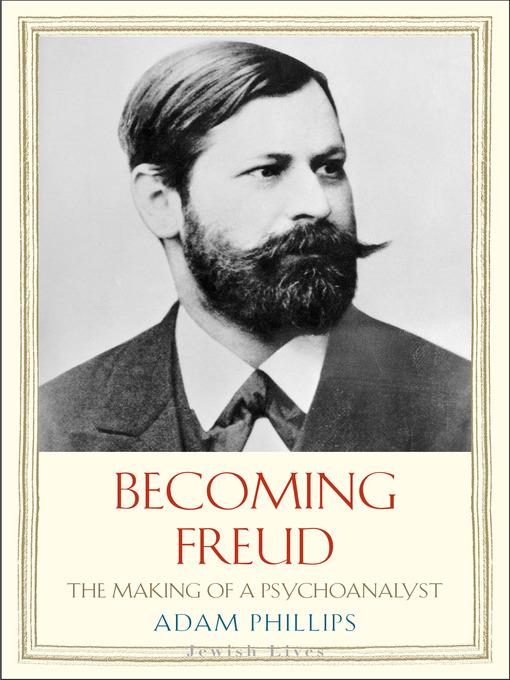
Becoming Freud
The Making of a Psychoanalyst
کتاب های مرتبط
- اطلاعات
- نقد و بررسی
- دیدگاه کاربران
نقد و بررسی

May 26, 2014
Renowned psychoanalyst Phillips (One Way and Another) conjures up a vibrant portrait of Sigmund Freud, examining psychiatry's most famous figure as it contends with the difficulties of placing his life in biographic form. In contrast to the more popular focus on an older Freud, Phillips introduces us to a younger version: the eldest son of Jewish immigrants, gifted but troubled by childhood trauma, whose future ideas were founded upon these aspects of his upbringing. And so the emergence of psychoanalysis comes at the end of this story, implying that the widely influential school of thought is merely one aspect of Freud's larger story. The book's brevity speaks, perhaps, to the ways in which Freud's life resists complete documentation; in fact, biography represents the very type of reshaped and repurposed story of the past that Freud so famously attributed to dreams. Phillips's perspective, then, becomes openly interpretive, taken not as historical fact but rather as exploratory speculation of the very blatant ambiguities surrounding Freud's life. Much like psychoanalysis itself, this book does not seek to claim and advance any singular sense of truth; instead, it encourages us to relish in the illuminations, indeed the very uncertainties of the process. As such, it's a biography that might even have received the approval of Freud himself.

May 1, 2014
A psychoanalyst and translator of Freud summarizes the connections between Freud's life and his creation of psychoanalysis.In this latest installment of Yale's Jewish Lives series, Phillips (One Way and Another: Selected Essays, 2013, etc.) doesn't offer a full biography of Freud but focuses on the "great five books" he wrote around the turn of the 20th century (among them, The Interpretation of Dreams and The Psychopathology of Everyday Life), the works that both established Freud as a significant intellectual presence in Western thought and also laid the foundation for psychoanalysis. But Phillips, not neglecting the facts of Freud's life, sketches his family background, boyhood (he was a voracious reader), gifts as a student, decision to segue from medical practice to this thing that didn't really yet have a name-the focus on hysteria (principally in women). We learn about his marriage, his children, his professional friendships that usually dissolved later on, his astonishing productivity, his disdain for biography (Phillips is fully aware of this particular irony), his flight from Nazi-dominated Europe and his death in London. The author also discusses how Freud, though not a practicing Jew, nonetheless had to live in a world that did not care: He was a Jew, period, and this had grave consequences for his professional life and, later, for his safety. (Some relatives who stayed behind died in the Holocaust.) Phillips tells the stories of the professors and physicians who influenced him and notes that Freud grappled with ideas most complex and even contradictory-"we are helplessly desiring creatures," writes the author, with "an instinct for death." Some readers accustomed to today's breezier literary styles may wonder why Phillips favors so many page-length paragraphs.A clear and engaging-though sometimes tendentious-summary of some key moments in an intellectual life.
COPYRIGHT(2014) Kirkus Reviews, ALL RIGHTS RESERVED.

May 15, 2014
British psychoanalyst Phillips (former principal child psychotherapist, London's Charing Cross Hosp.; former general editor of the new "Penguin Modern Classics" series translations of Sigmund Freud; One Way and Another) examines the first 50 years of Sigmund Freud's life (1856-1939). The author digs deeply into his subject's massive writings, major biographies of him, and other research to reveal insights into how he began the development of psychoanalysis, the impact the plight of Jewish people (especially during World War II) had on his work and life, and his analysis and interpretation of dreams. Phillips's masterly, succinct scholarship examines how Freud's work continues to influence the practice of psychoanalysis. While the material is academic, even lay readers can use it to gain a better appreciation of the discipline. They will also come to realize how Freud's pioneering research has formed the basis for understanding what people do without realizing what they are doing, the link between transgression and knowledge, the inventiveness of conscious and unconscious communication, and, of course, the interpretation of dreams. VERDICT This solid title presents a highly erudite account of the early life of Freud that nicely supplements other works, such as Peter Gay's Freud: A Life for Our Time, Ernest Jones's The Life and Work of Sigmund Freud, and Louis Breger's Freud: Darkness in the Midst of Vision. Phillips's complex investigation is most relevant for graduate-level curricula in psychology, psychiatry, and psychoanalysis.--Dale Farris, Groves, TX
Copyright 2014 Library Journal, LLC Used with permission.

























دیدگاه کاربران